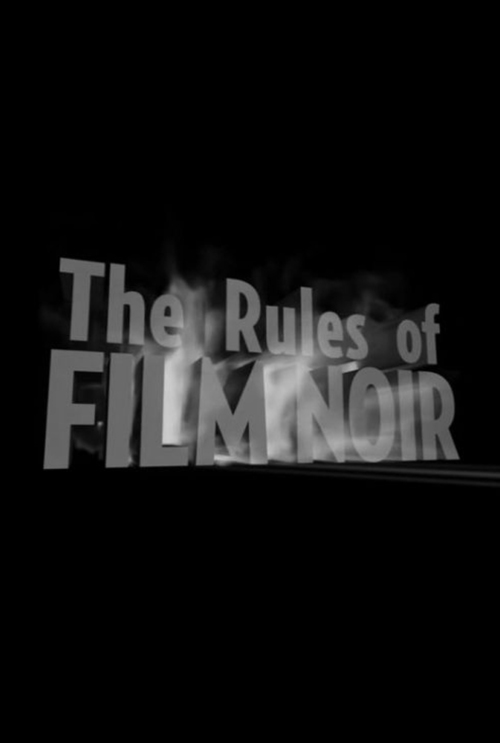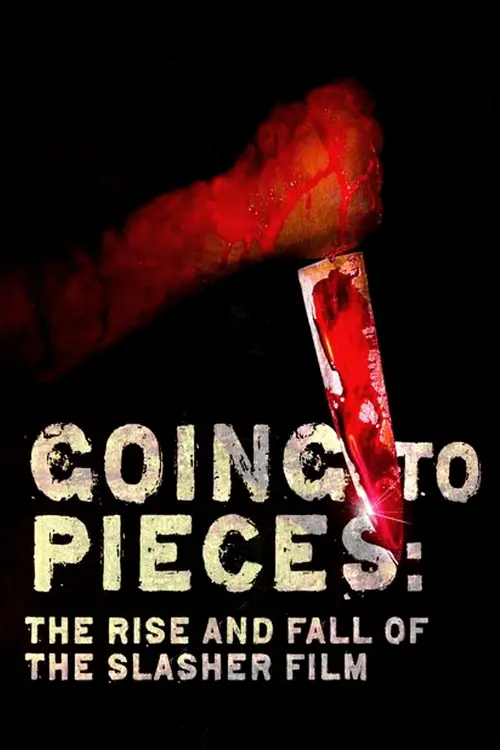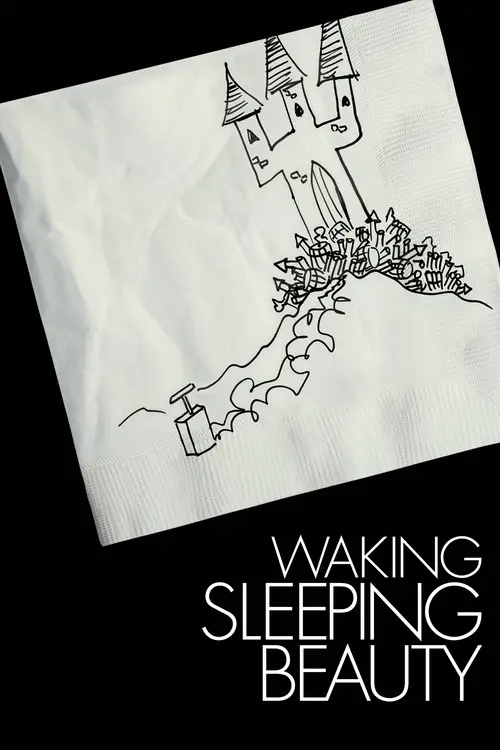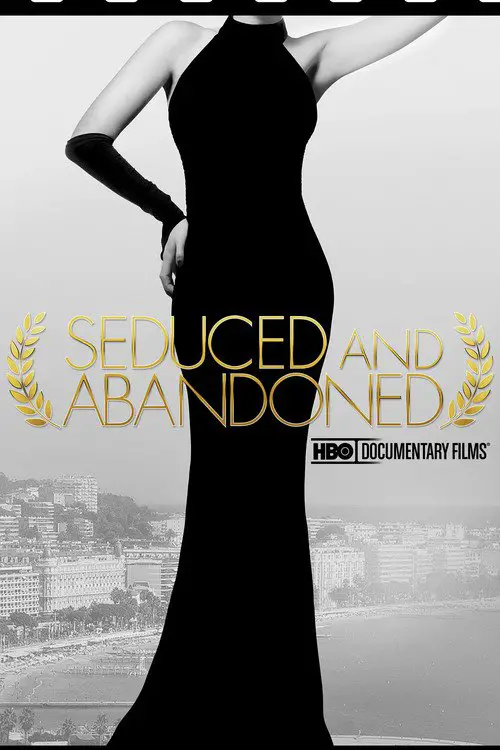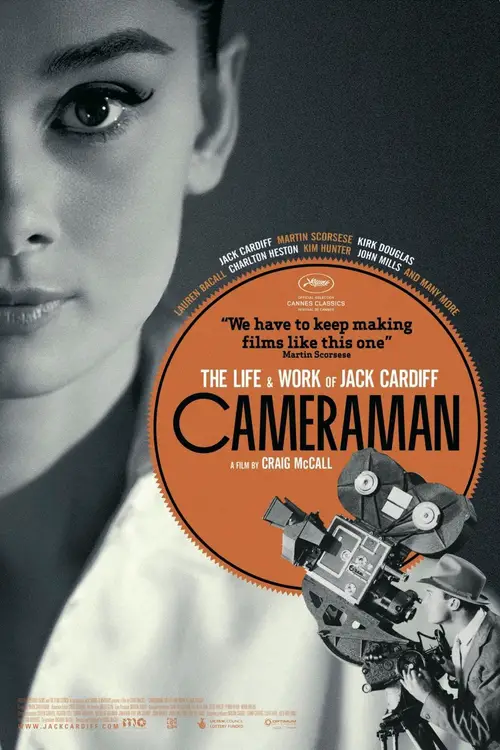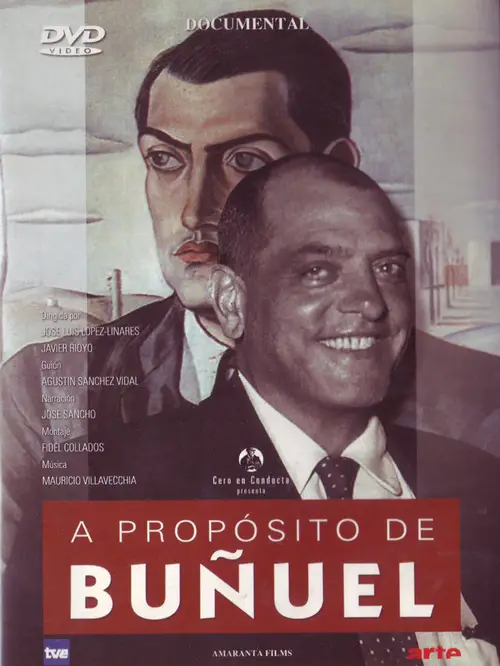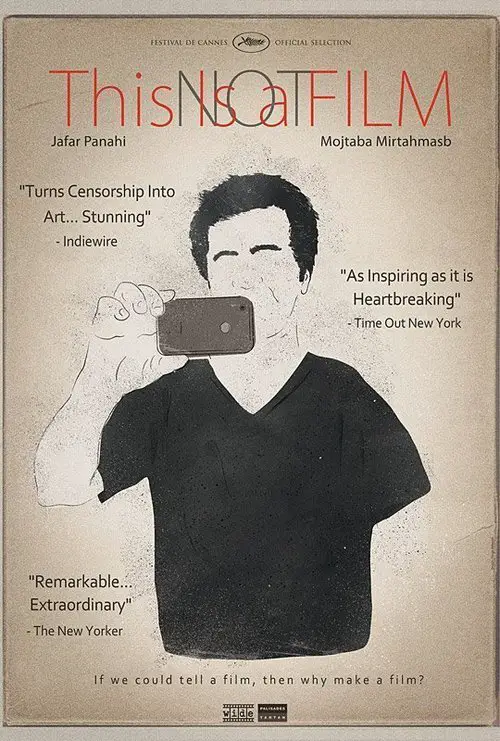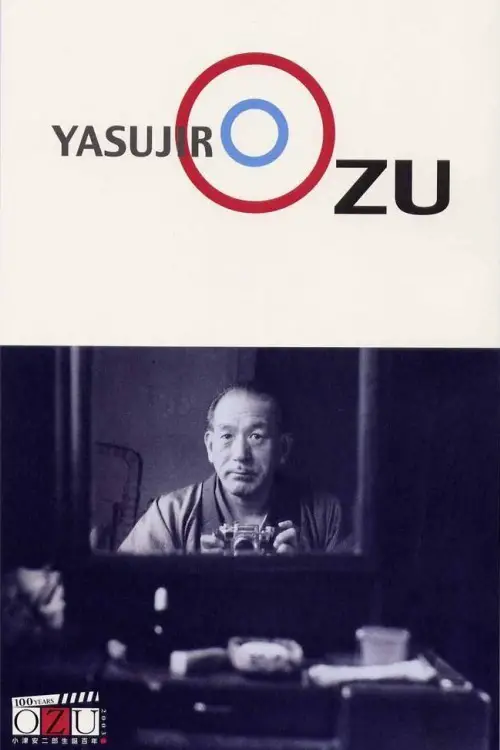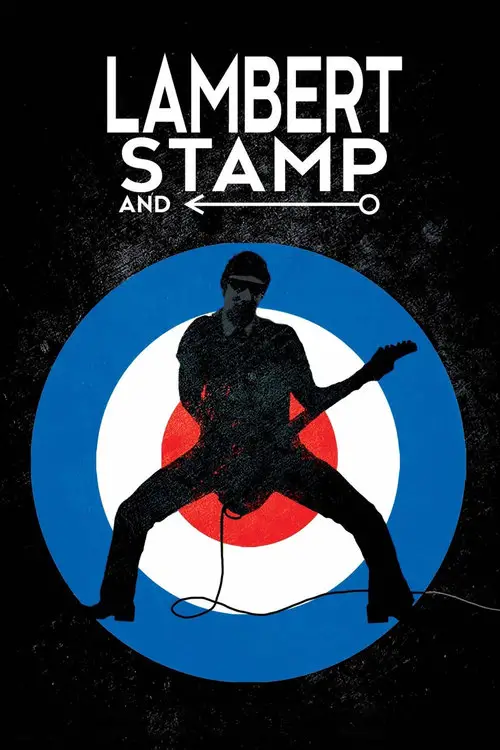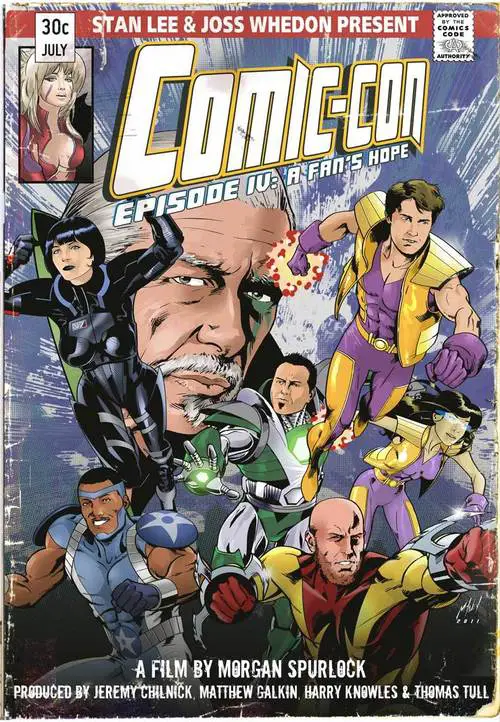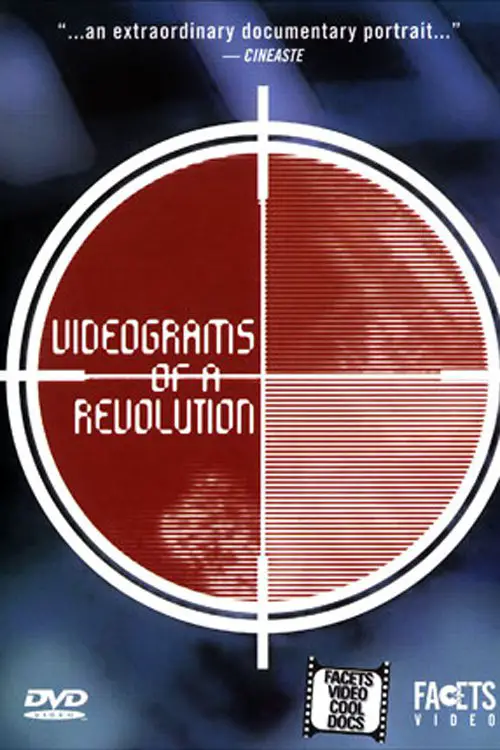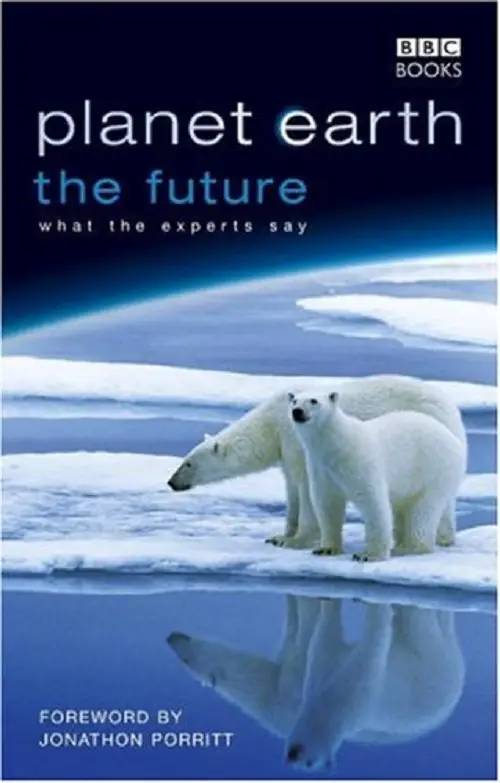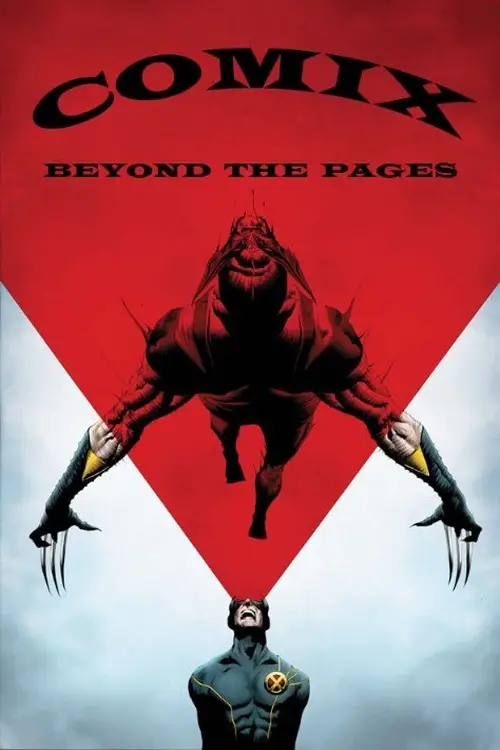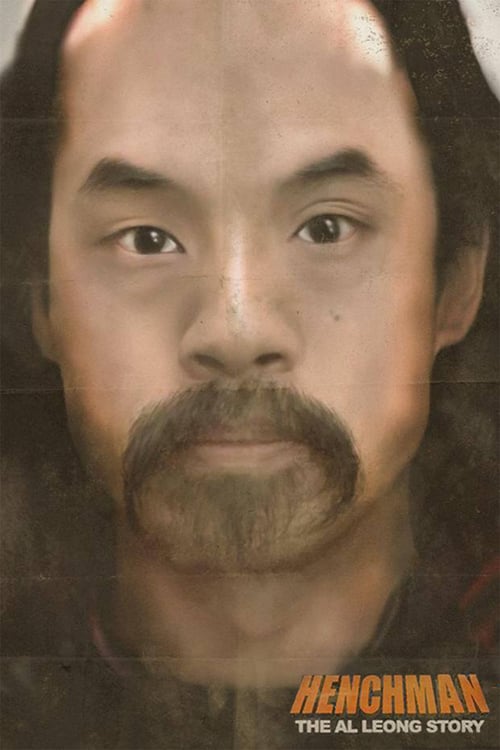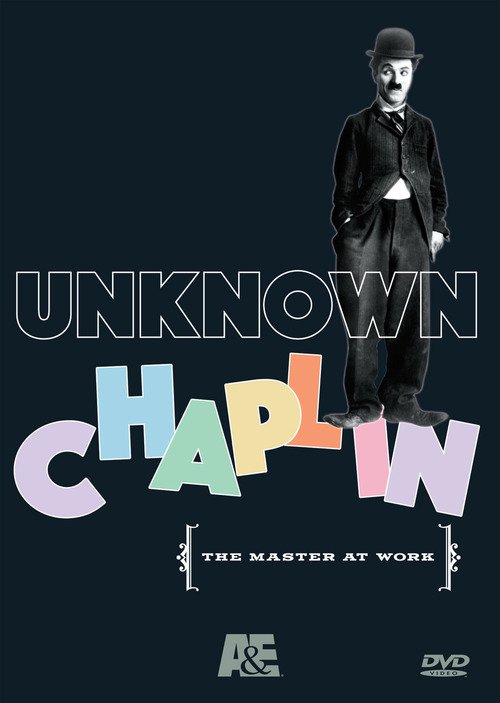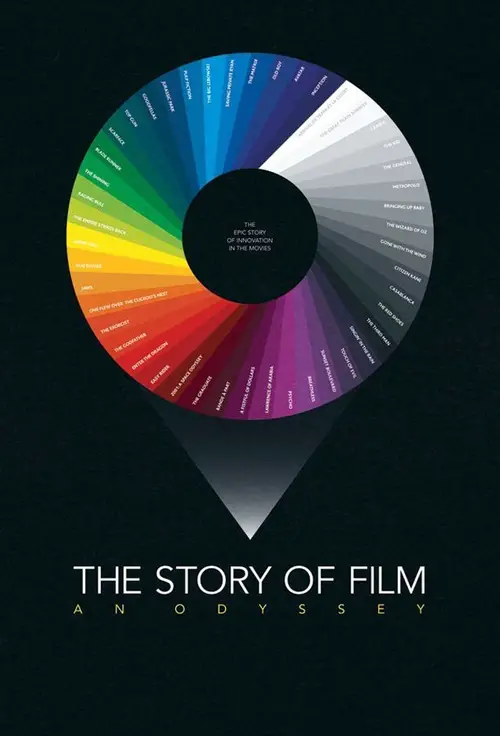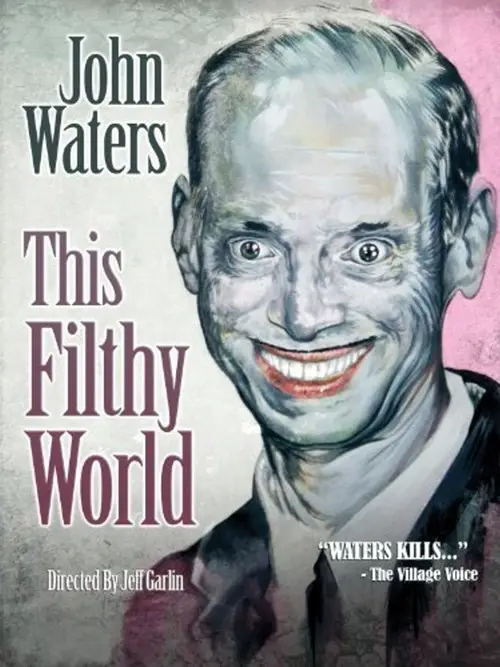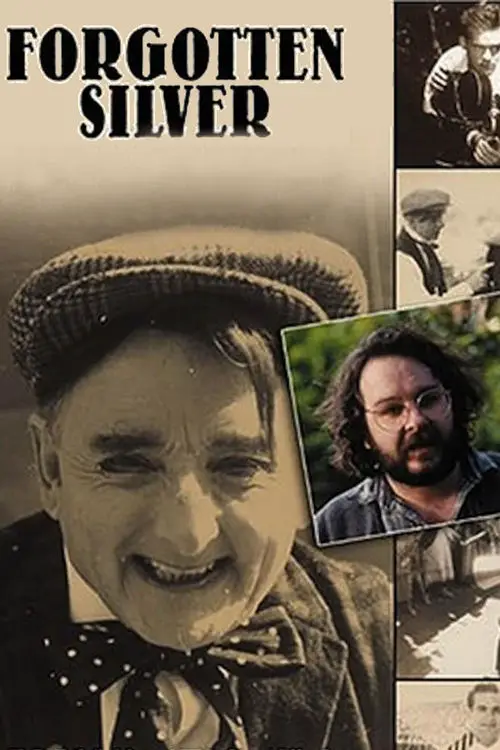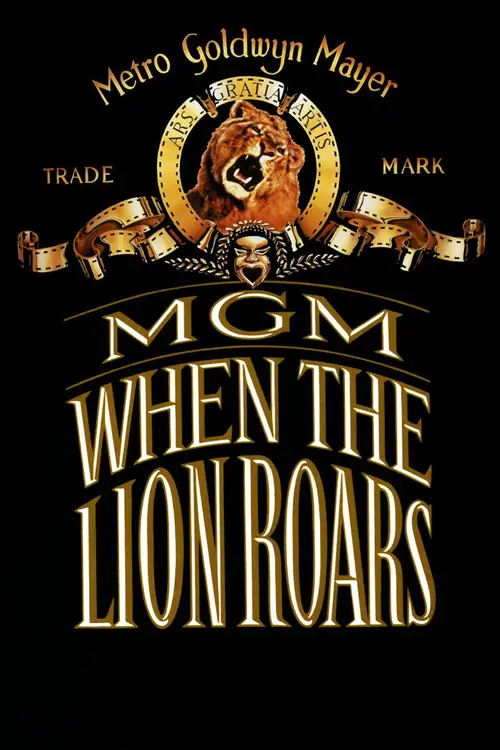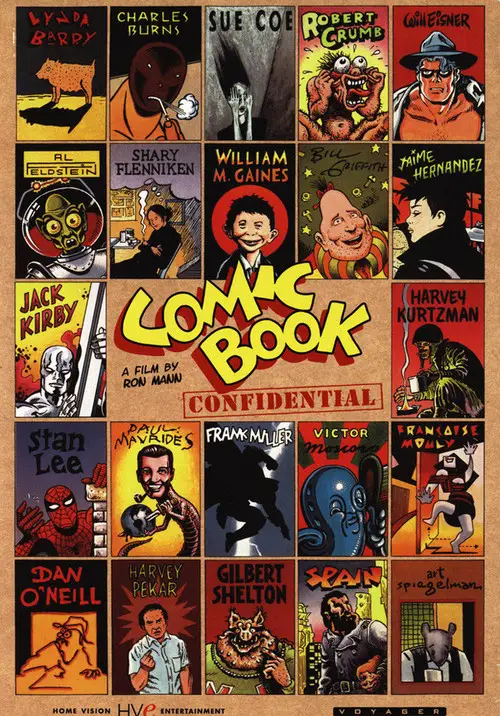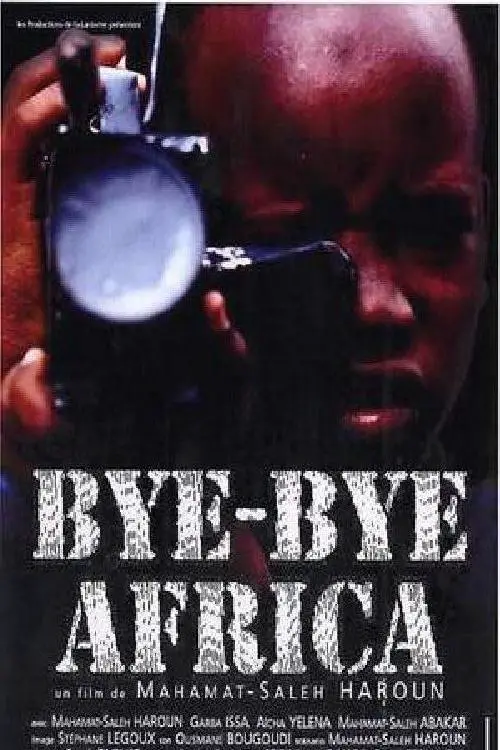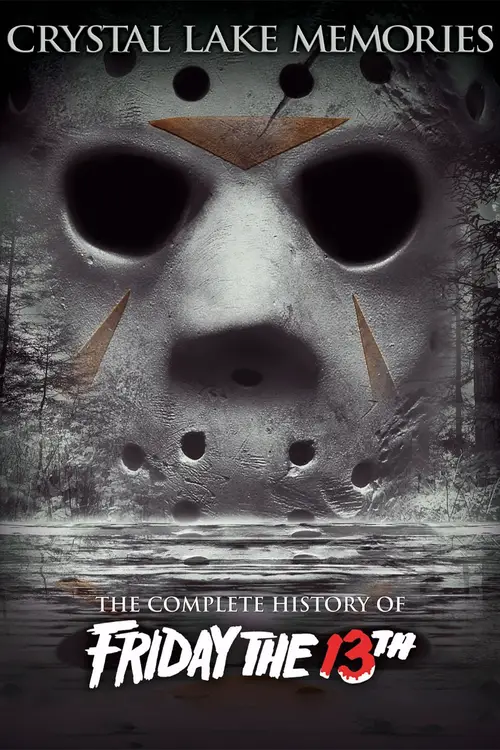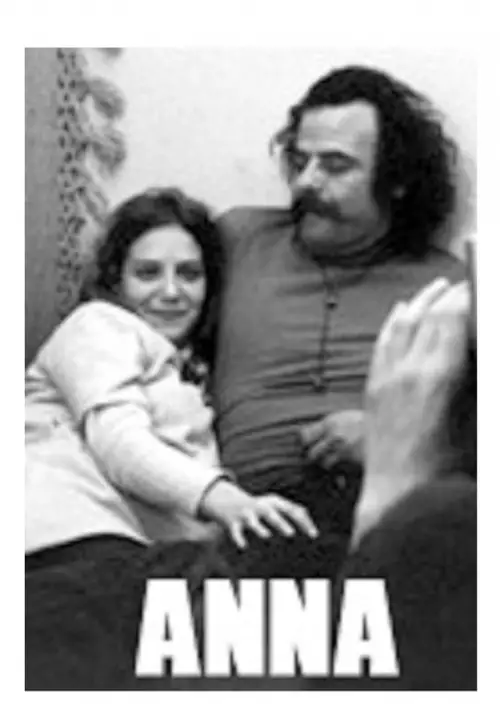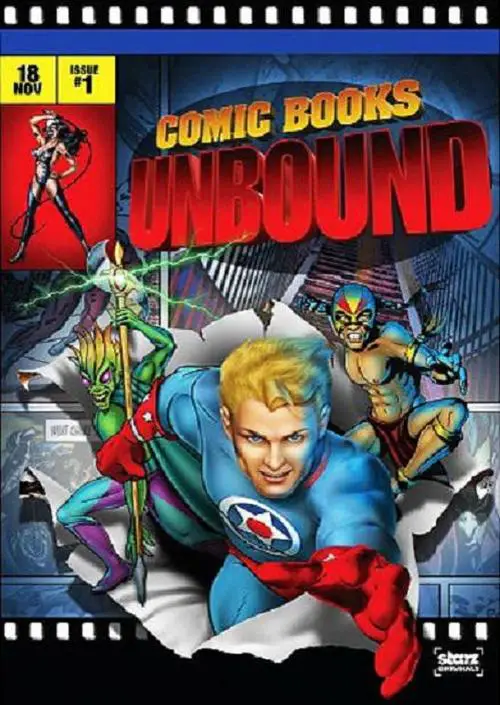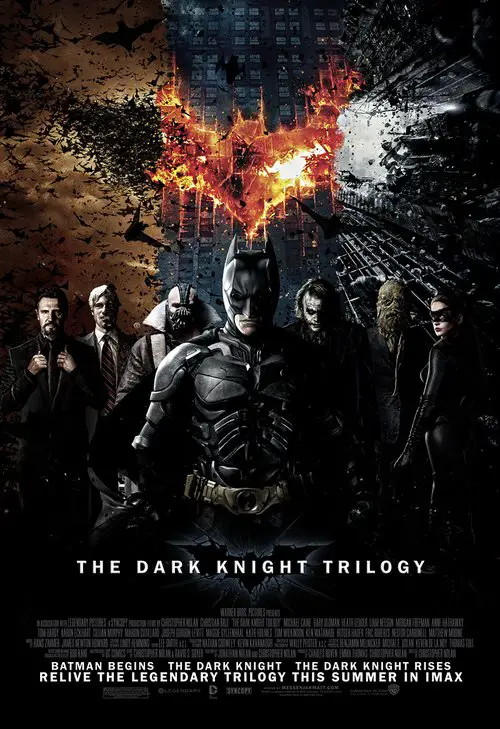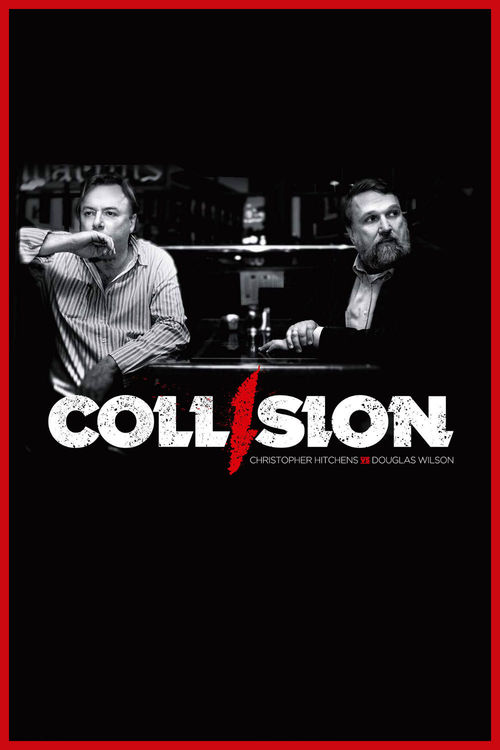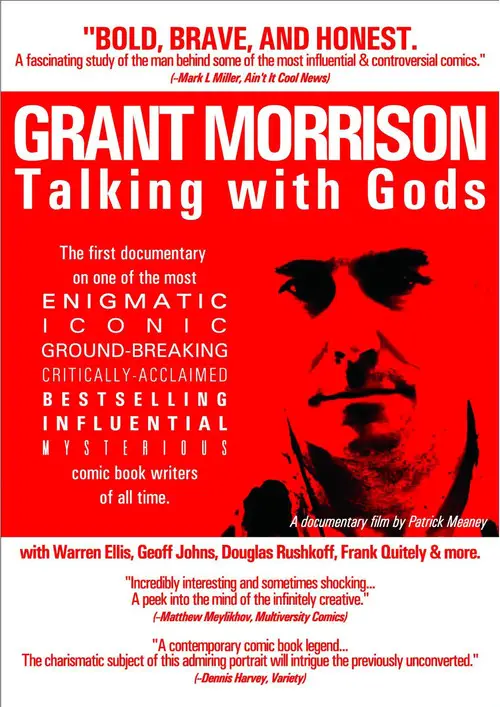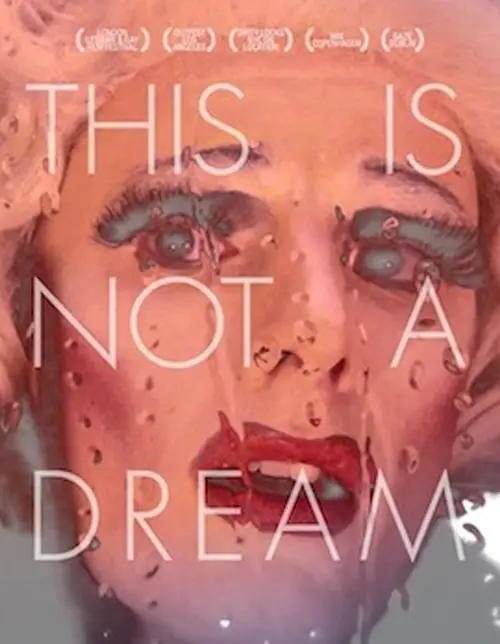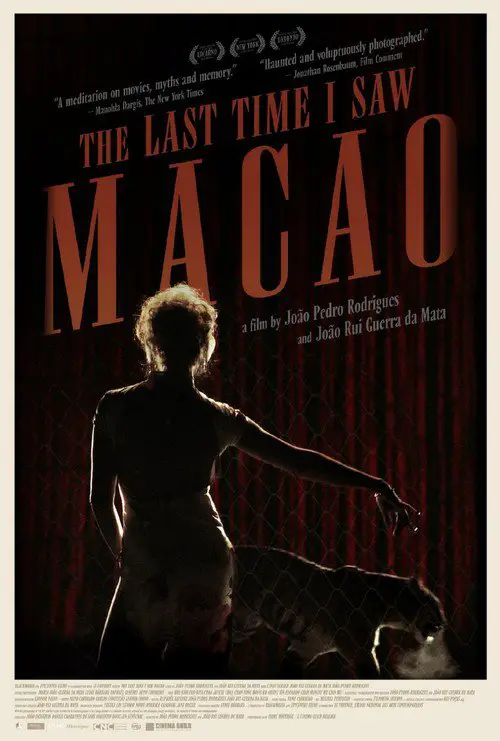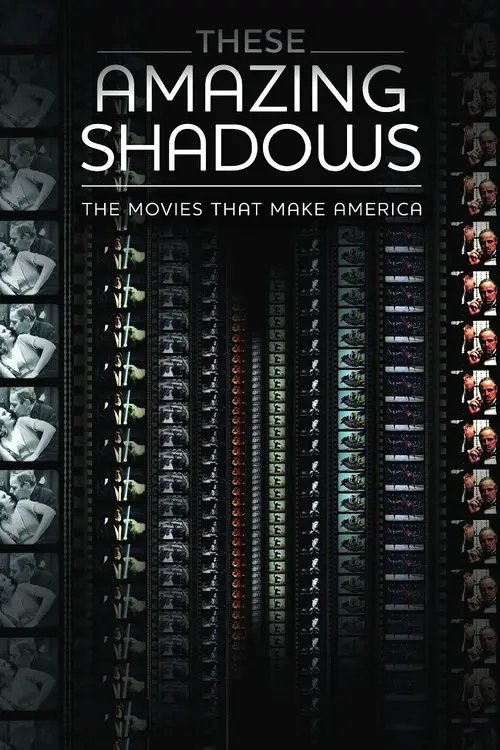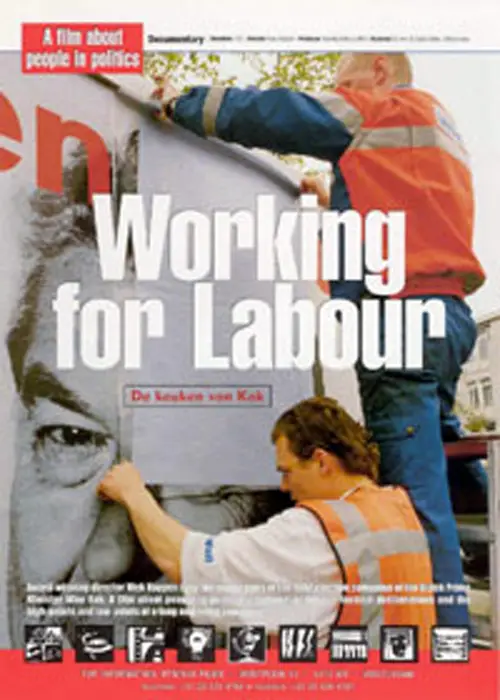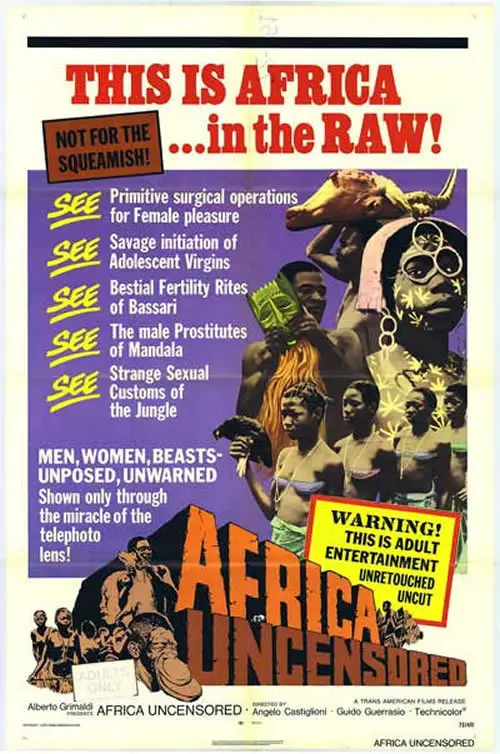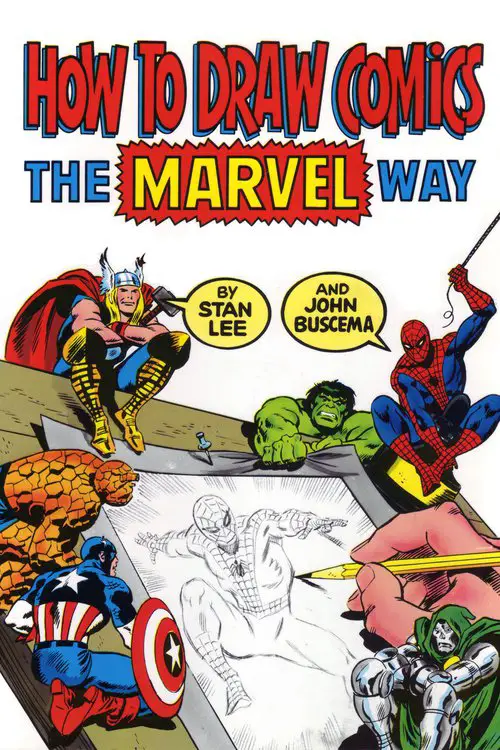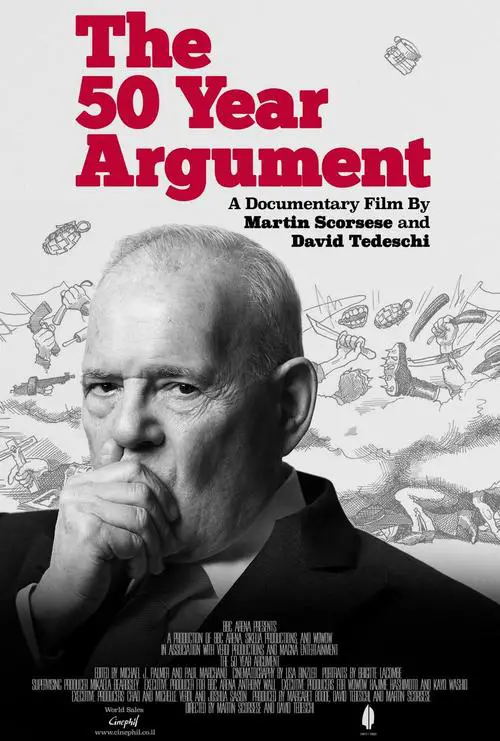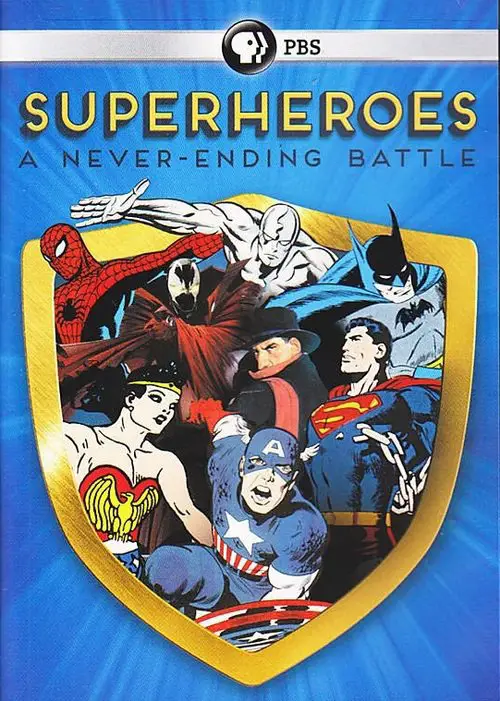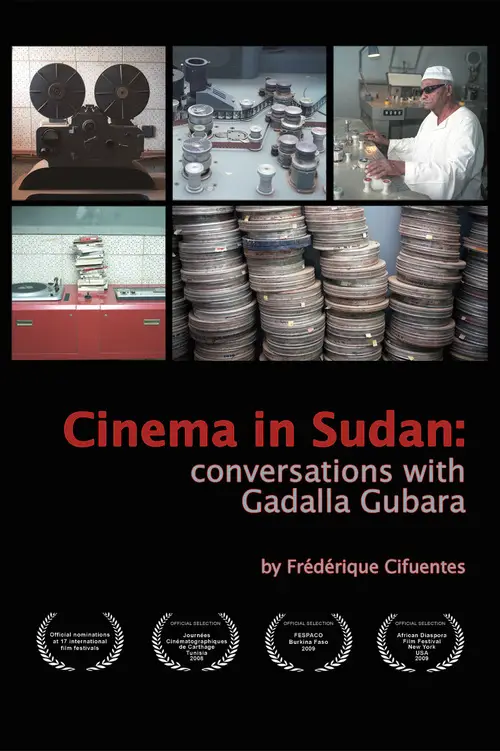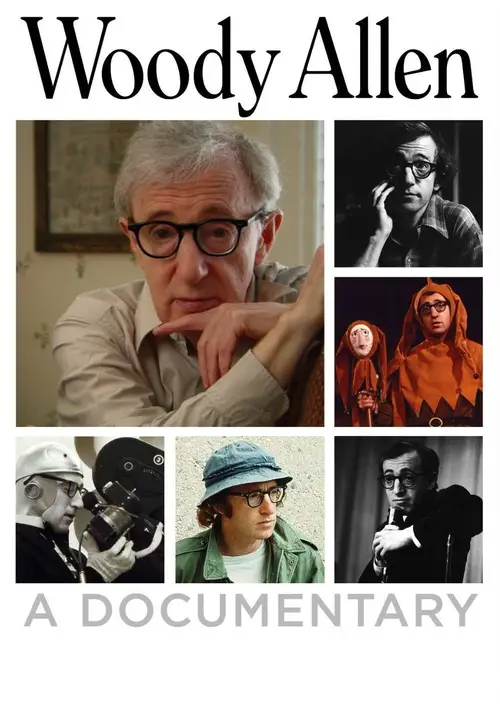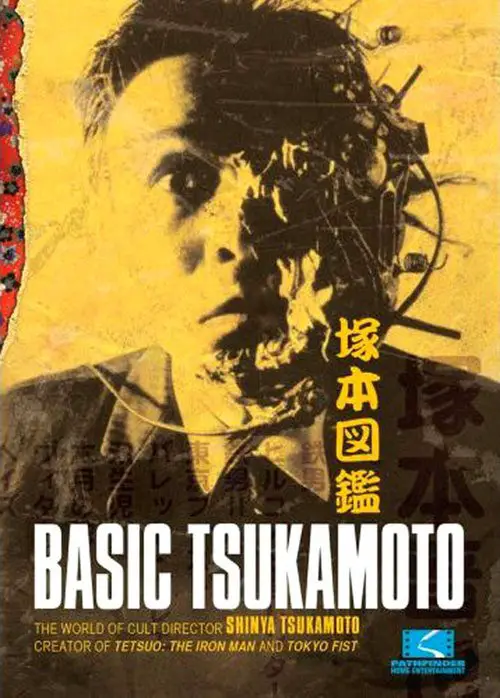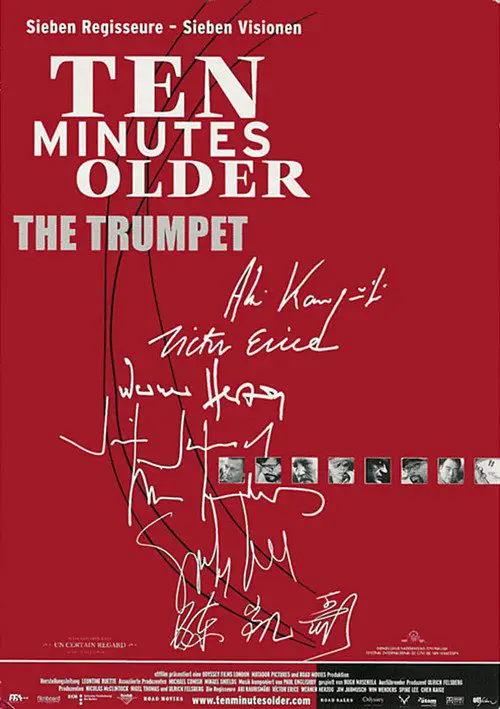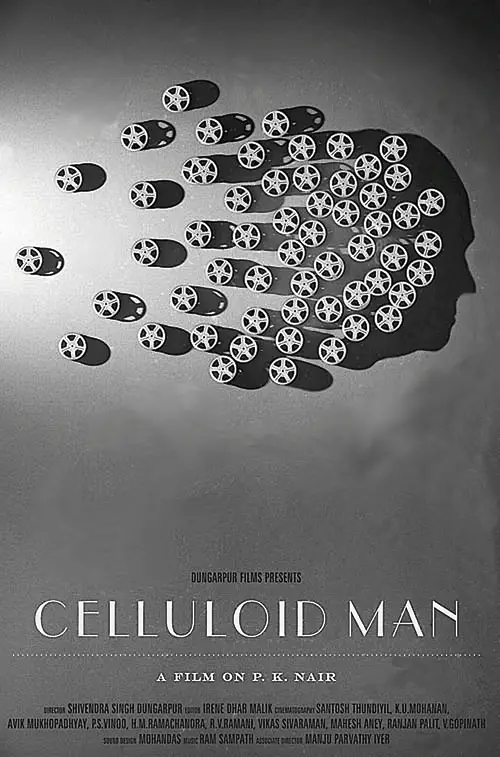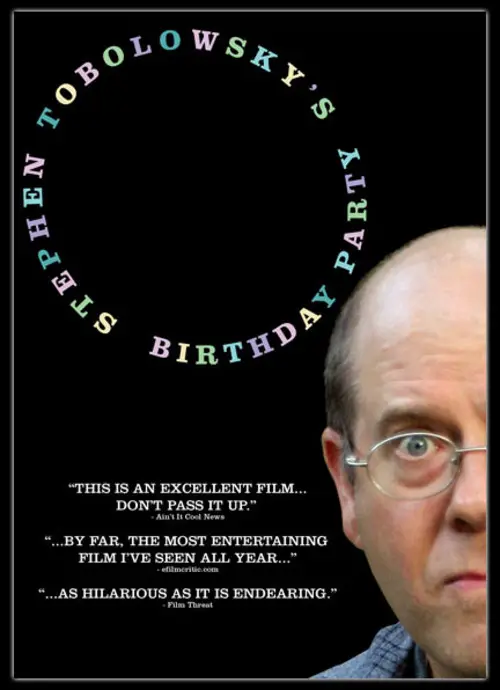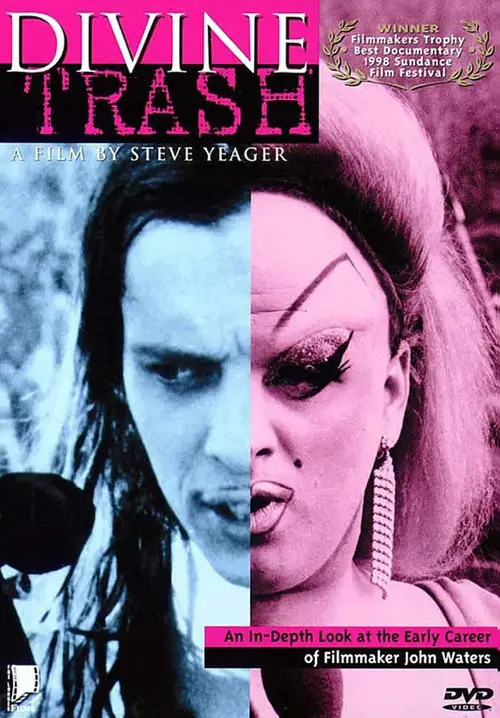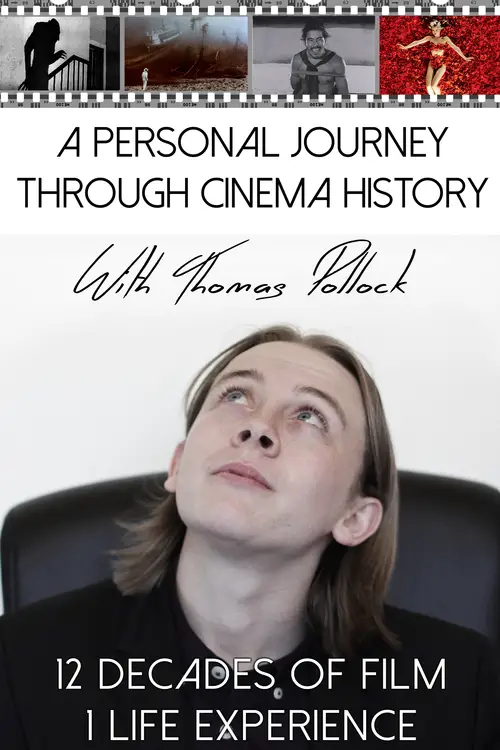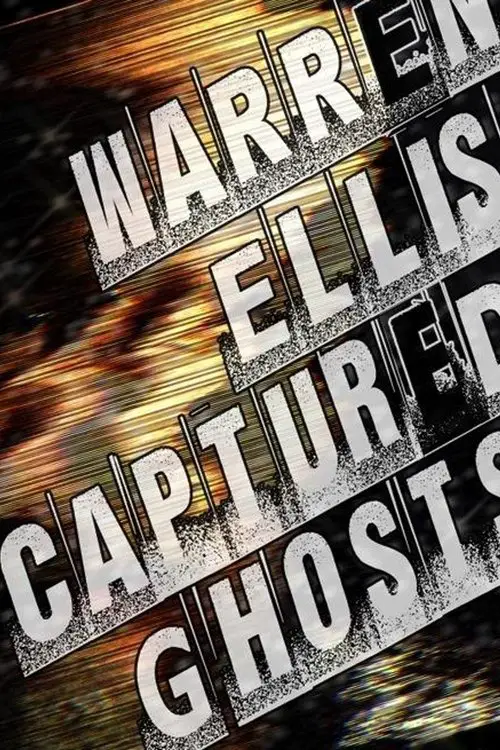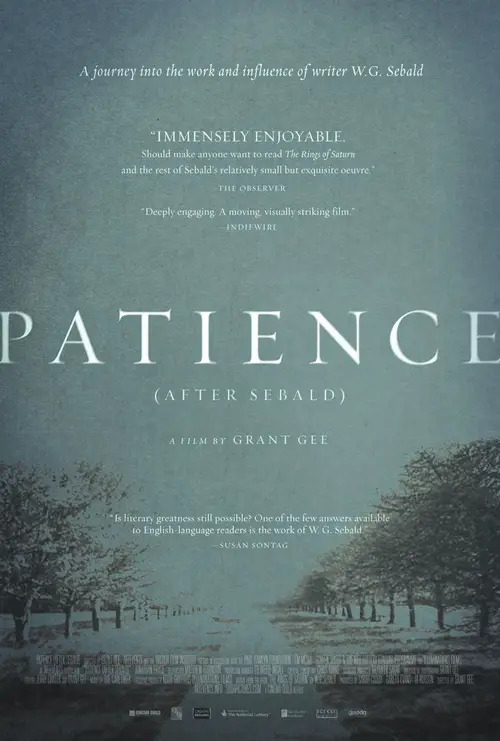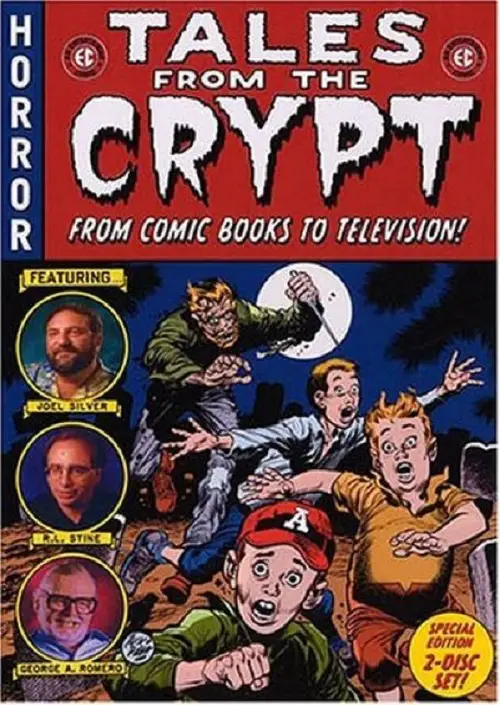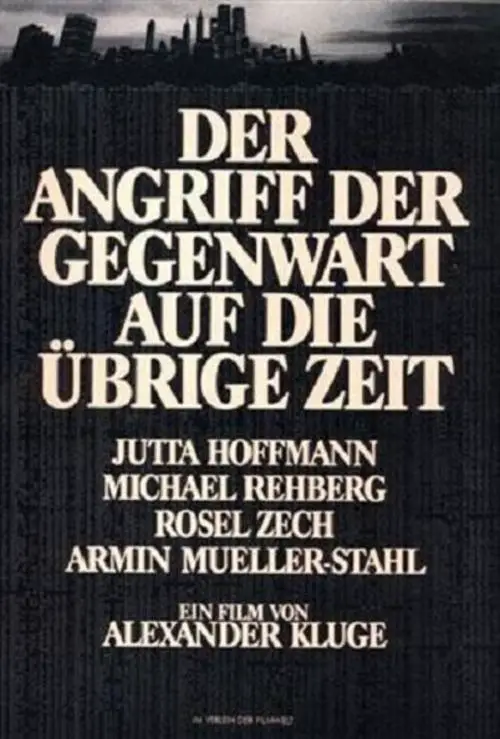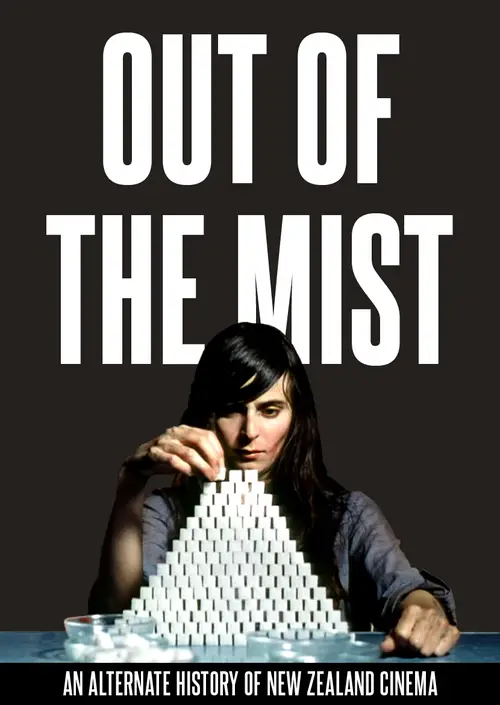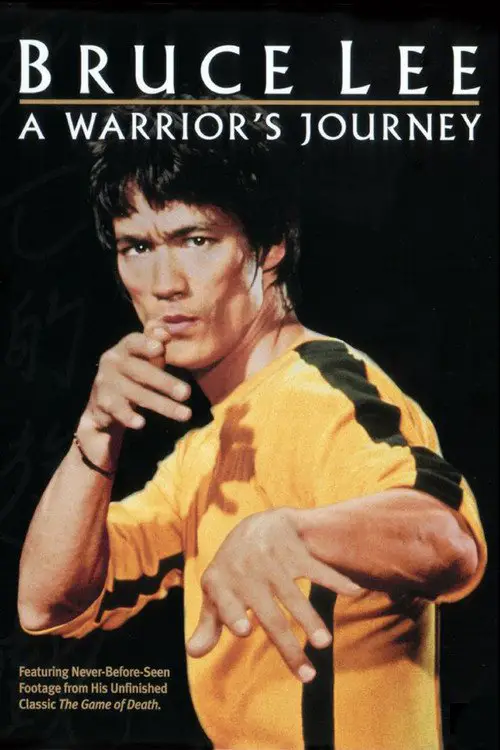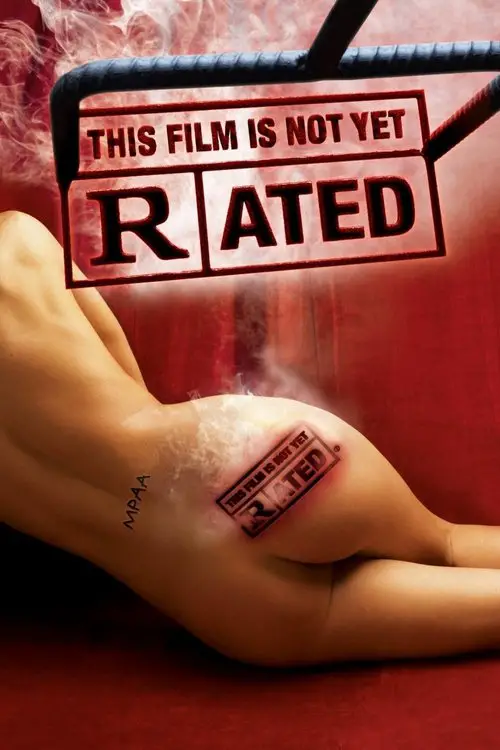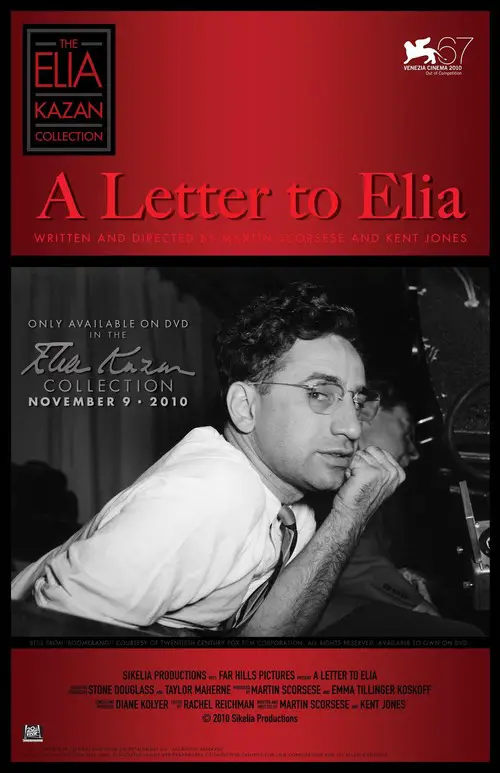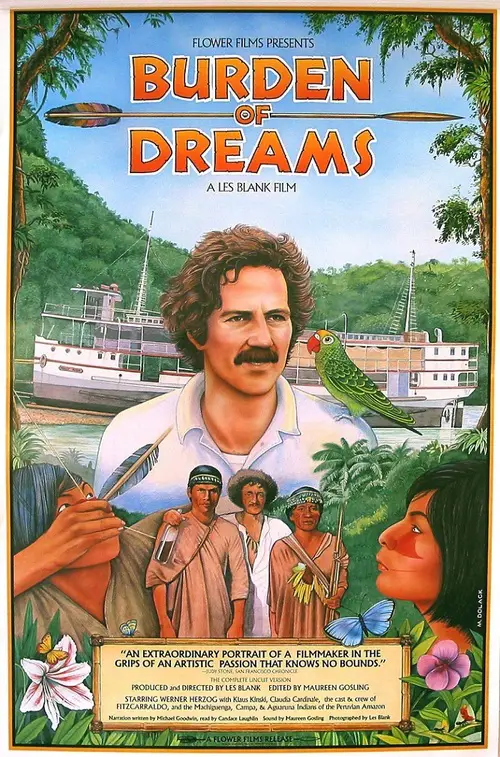The Jodorowsky Constellation (1994)
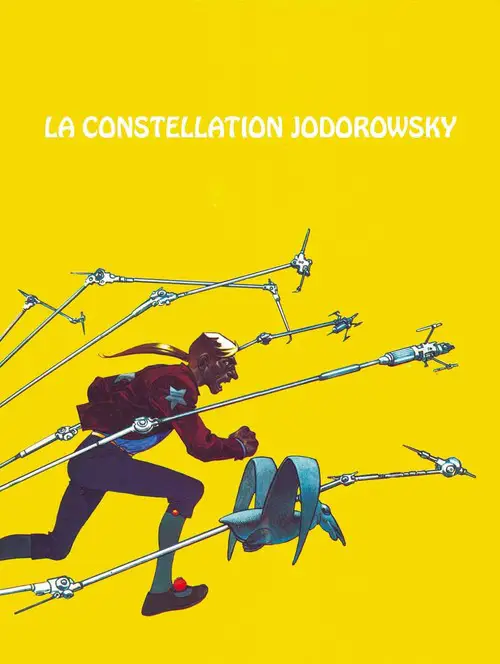
Similar movies
Matthew Sweet explores his rules of 1940s and 50s American film noir thrillers: *Choose a dame with no past and a hero with no future *Use no fiction but pulp fiction *See America through a stranger's eyes *Make it any colour as long as it's black *It ain't what you say, it's the way that you say it.
This historical and critical look at slasher films, which includes dozens of clips, begins with "Halloween," "Friday the 13th," and "Prom Night." The films' directors, writers, producers, and special effects creators comment on the films' making and success. During the Reagan years, the films get gorier, budgets get smaller, and their appeal wanes. Then, "Nightmare on Elm Street" revives the genre. Jump to the late 90s, when "Scream" brings humor and TV stars into the mix. Although some criticize the genre as misogynistic (Siskel and Ebert), most of the talking heads celebrate the films: as long as there are teenagers, there will be slasher films, says one.
By the mid-1980s, the fabled animation studios of Walt Disney had fallen on hard times. The artists were polarized between newcomers hungry to innovate and old timers not yet ready to relinquish control. These conditions produced a series of box-office flops and pessimistic forecasts: maybe the best days of animation were over. Maybe the public didn't care. Only a miracle or a magic spell could produce a happy ending. Waking Sleeping Beauty is no fairy tale. It's the true story of how Disney regained its magic with a staggering output of hits - "Little Mermaid," "Beauty and the Beast ," "Aladdin," "The Lion King," and more - over a 10-year period.
SEDUCED AND ABANDONED combines acting legend Alec Baldwin with director James Toback as they lead us on a troublesome and often hilarious journey of raising financing for their next feature film. Moving from director to financier to star actor, the two players provide us with a unique look behind the curtain at the world's biggest and most glamourous film festival, shining a light on the bitter-sweet relationship filmmakers have with Cannes and the film business. Featuring insights from directors Martin Scorsese, 'Bernando Bertolucci' and Roman Polanski; actors Ryan Gosling and Jessica Chastain and a host of film distribution luminaries.
In 2001 Jack Cardiff (1914-2009) became the first director of photography in the history of the Academy Awards to win an Honorary Oscar. But the first time he clasped the famous statuette in his hand was a half-century earlier when his Technicolor camerawork was awarded for Powell and Pressburger's Black Narcissus. Beyond John Huston's The African Queen and King Vidor's War and Peace, the films of the British-Hungarian creative duo (The Red Shoes and A Matter of Life and Death too) guaranteed immortality for the renowned cameraman whose career spanned seventy years.
AMERICAN MOVIE is the story of filmmaker Mark Borchardt, his mission, and his dream. Spanning over two years of intense struggle with his film, his family, financial decline, and spiritual crisis, AMERICAN MOVIE is a portrayal of ambition, obsession, excess, and one man's quest for the American Dream.
Documentary about the film maker Luis Bunuel. Surrealist master Luis Bunuel is a towering figure in the world of cinema history, directing such groundbreaking works as Un Chien Andalou, Exterminating Angels, and That Obscure Object of Desire, yet his personal life was clouded in myth and paradox. Though sexually diffident, he frequently worked in the erotic drama genre; though personally quite conservative, his films are florid, flamboyant, and utterly bizarre. This documentary, directed Jose Luis Lopez Linares, tries to illuminate some of these contradictions.
An extremely lovely tribute to Ozu, on the 20th anniversary of his death. It uses a combination of footage from vintage films and new material (both interviews and Ozu-related locations) shot by Ozu's long-time camera-man (who came out of retirement to work on this). Surprisingly (or perhaps not), it focuses less on Ozu's accomplishments as a film-maker than on his impact on the lives of the people he worked with..
This fiction-documentary hybrid uses a sensational real-life eventâthe arrest of a young man on charges that he fraudulently impersonated the well-known filmmaker Mohsen Makhmalbafâas the basis for a stunning, multilayered investigation into movies, identity, artistic creation, and existence, in which the real people from the case play themselves.
Videograms of a Revolution is a 1992 documentary film compiled by Harun Farocki and Andrei UjicÄ from over 125 hours of amateur footage, news footage, and excerpts from the Bucharest TV studio overtaken by demonstrators as part of the December 1989 Romanian Revolution. In 2004 the Austrian Film Archive selected the documentary as part of its Die Utopie Film program for The Best 100 in Film History list.
Planet Earth: The Future is a 2006 BBC documentary miniseries on the environment and conservation, produced by the BBC Natural History Unit as a companion to the multi-award winning nature documentary Planet Earth. The programmes were originally broadcast on BBC Four immediately after the final three episodes of Planet Earth on BBC One. Each episode highlights the conservation issues surrounding some of the species and environments featured in Planet Earth, using interviews with the film-makers and eminent figures from the fields of science, conservation, politics, and theology. The programmes are narrated by Simon Poland and the series producer was Fergus Beeley.
COMIX is a feature documentary on comic books, the comic book world, and the phenomenon surrounding them. It is told through the thoughts and images of some of the greatest talent in the comic book industry like Stan Lee, Frank Miller, Neal Adams, Mark Waid, Marc Silvestri, and John Romita Jr., among many others. COMIX also has tons of interviews with the fans, many in full costumes, as they share their love for the art form, and who have made comics the phenomenon that it is today.
The Story of Film: An Odyssey, written and directed by award-winning film-maker Mark Cousins, is the story of international cinema told through the history of cinematic innovation. Five years in the making, The Story of Film: An Odyssey covers six continents and 12 decades, showing how film-makers are influenced both by the historical events of their times, and by each other. It provides a worldwide guided tour of the greatest movies ever made; an epic tale that starts in nickelodeons and ends as a multi-billion-dollar globalised digital industry. Described as a love letter to the movies, Cousins visits the key sites in the history of cinema; from Hollywood to Mumbai; from Hitchcock s London to the village where Pather Panchali was shot, and features interviews with legendary filmmakers and actors including Stanley Donen, Kyoko Kagawa, Gus van Sant, Lars Von Trier, Claire Denis, Bernardo Bertolucci, Robert Towne, Jane Campion and Claudia Cardinale.
In this filmed version of cult film director John Waters' popular one-man show, the Pink Flamingos and A Dirty Shame director takes the stage to discuss everything from his early influences, fondest career memories, and notorious struggles against the MPAA rating system. Part endearing memoir and part hilarious lecture, This Filthy World touches on everything from the insanity of contemporary pop culture to the director's unforgettable early collaborations with inimitable Pink Flamingos star Divine.
This dryly funny mockumentary about the lost work of a pioneering New Zealand film genius is probably one of the best examples of the faux-documentary genre. In fact, it was so successful that when it originally aired on New Zealand television, hundreds of viewers bought the premise hook, line, and sinker. If you didn't know any better yourself, it's entirely possible you might be duped into believing the extremely tall tale of one Colin MacKenzie, an ambitious filmmaker who made the world's first talking movie (years before The Jazz Singer), invented color film, and created a huge biblical epic that would put Cecil B. DeMille and D.W. Griffith to shame. Filmmaker Peter Jackson (Heavenly Creatures) shrewdly inserts himself into the film via his documentation of the "discovery" of McKenzie's lost epic, which for years was preserved in a garden shed.
In the 20th century, no artistic medium in North America with so much potential for creative expression has had a more turbulent history plagued with less respect than comic books. Through animated montages, readings and interviews, this film guides us through the history of the medium from the late 1930s and 1940s with the first explosion of popularity with the superheroes created by great talents like Jack Kirby and hitting its first artistic zenith with Will Eisner's "Spirit". It then shifts to the post war comics world with the rising popularity of crime and horror comics, especially those published by EC Comics under the editorshiop of William B. Gaines until it came crashing down the rise of censorship with the imposition of the Comics Code. In its wake of the devastation of the medium's creative freedom, we also explore EC's defiant survival with the creation of the singular "Mad Magazine" by Harvey Kurtzman.
Since the invention of cinema, the standard format for recording moving images has been film. Over the past two decades, a new form of digital filmmaking has emerged, creating a groundbreaking evolution in the medium. Keanu Reeves explores the development of cinema and the impact of digital filmmaking via in-depth interviews with Hollywood masters, such as James Cameron, David Fincher, David Lynch, Christopher Nolan, Martin Scorsese, George Lucas, Steven Soderbergh, and many more.
A Chadian film director who lives and works in France (Haroun) returns home upon the death of his mother. He is shocked at the degraded state of the country and the national cinema. The filmmaker decides to make a film dedicated to his mother entitled Bye Bye Africa but immediately encounters major problems. Cinemas have closed and financing is impossible to secure. The director reunites with an old girlfriend (Yelena), who was shunned by Chadians who could not distinguish between film and reality after appearing in one of his previous films as an HIV victim. Haroun learns about the destruction of the African cinema from directors in neighboring countries, but also finds Issa Serge Coelo shooting his first film, Daressalam. Things go badly and, convinced that it is impossible to make films in Africa, Haroun departs Chad in despair, leaving his film camera to a young boy who had been assisting him.
A documentary ostensibly about Anna, a young drug addict taken off the streets by one of the filmmakers. Through her they attempt to explore the social issues from their hippie perspective, instead they create a revealing, uncomfortable self-portrait and inadvertently raise questions about documentary film-making.
This feature-length documentary delves into the trilogy, opening with the inspiration and vision for the new Batman films and inching its way toward the Rises finale and the culmination of nearly a decade of creative blood, sweat and tears. Candid, thoughtful and extensive, and comprised of revealing behind-the-scenes footage, countless interviews, audition tapes (with Christian Bale and Cillian Murphy doning the cape and cowl), and a narrative grip and momentum all its own, it leaves no stone unturned.
COLLISION carves a new path in documentary film-making as it pits leading atheist, political journalist and bestselling author Christopher Hitchens against fellow author, satirist and evangelical theologian Douglas Wilson, as they go on the road to exchange blows over the question: "Is Christianity Good for the World?". The two contrarians laugh, confide and argue, in public and in private, as they journey through three cities. And the film captures it all. The result is a magnetic conflict, a character-driven narrative that sparkles cinematically with a perfect match of arresting personalities and intellectual rivalry. COLLISION is directed by prolific independent filmmaker Darren Doane (Van Morrison: Astral Weeks Live at the Hollywood Bowl, The Battle For L.A., Godmoney).
Philosopher, pop-icon, shaman and story teller - as one of the most influential comic book writers in the market today, Grant Morrison is all of these things. His explosive and often controversial 30 year career has made him a household name for comic fans, and he shows no signs of slowing down. Morrison's career is now taking a new turn, as he explores media beyond comic books. With film and television projects on the horizon, more and more people are asking "Who is Grant Morrison?" Grant Morrison: Talking with Gods is a feature length documentary that takes an in depth look at the life, career and mind of the man behind such pivotal titles as Batman RIP, The Invisibles, All Star Superman, The New X-Men, and many more. Featuring candid interviews with Morrison and his most important collaborators, Talking with Gods reveals an intelligent and thought provoking side of comic books that is often overlooked in Hollywood adaptations.
The video revolution of the 1970s offered unprecedented access to the moving image for artists and performers. This Is Not a Dream explores the legacies of this revolution and its continued impact on contemporary art and performance. Charting a path across four decades of avant-garde experiment and radical escapism, This Is Not a Dream traces the influences of Andy Warhol, John Waters and Jack Smith to the perverted frontiers of YouTube and Chatroulette, taking in subverted talk shows and soap operas, streetwalker fashions and glittery magic penises along the way.
With commentary from Hollywood stars, outtakes from his movies and footage from his youth, this documentary looks at Stanley Kubrick's life and films. Director Jan Harlan, Kubrick's brother-in-law and sometime collaborator, interviews heavyweights like Jack Nicholson, Woody Allen and Sydney Pollack, who explain the influence of Kubrick classics like "Dr. Strangelove" and "2001: A Space Odyssey," and how he absorbed visual clues from disposable culture such as television commercials.
No film-maker has ever before been given permission to follow a Dutch election campaign with the camera. On the basis of a few contractual conditions, film-maker Niek Koppen was given a glimpse into the 'kitchen' of the Labour Party election campaign in 1998. From the making of the publicity photos by Anton Corbijn to the celebration of the election victory on 6 May 1998. In the Prime Minister's residence, Koppen recorded how decisions were taken during intimate discussions, phone calls and meals. The film focuses on the arduous cooperation between the veterans Wim Kok and Jacques Wallage and the much younger campaign director Karin Adelmund. De keuken van Kok (Working for Labour) provides a picture of the emotions, ambitions, tactics and the ups and downs of a long and tiring process. (filmcommission.nl)
Superhero creator and Marvel Comics legend, Stan Lee, together with Marvel's top artist, John Buscema, demonstrate the skills needed to create compelling characters and scenes for drawing and writing comic books. Based on the book of the same name, the video became an educational classic for aspiring cartoonists and is also available on DVD. Stan Lee's flair for humor and close friendship with Buscema adds to this good-natured instructional video a sense of drama, action and fun. Stan Lee's inimitable talent for creating superheroes (Spider Man, The Incredible Hulk, etc.) and Buscema's own creations (Conan the Barbarian, Silver Surfer, etc.) meshes well in the conversation and makes this a special treat for comic book fans as well as cartoonists on all levels
Directed by acclaimed filmmaker Martin Scorsese and his longtime documentary collaborator David Tedeschi, A 50 Year Argument rides the waves of literary, political, and cultural history as charted by the The New York Review of Books, Americaâs leading journal of ideas for over 50 years. Provocative, idiosyncratic and incendiary, the film weaves rarely seen archival material, contributor interviews, excerpts from writings by such icons as James Baldwin, Gore Vidal, and Joan Didion along with original verité footage filmed in the Reviewâs West Village offices. Confrontation and original argument are in the Review's DNA - the magazine seems as vital now as when it was run by its indefatigable founding editors, Robert Silvers and the late Barbara Epstein. Co-produced with the BBC's award-winning Arena and shaped by Scorcese's vivid filmmaking style, The Fifty Year Argument captures the power of ideas in influencing history.
Examines the dawn of the comic book genre and its powerful legacy, as well as the evolution of the characters who leapt from the pages over the last 75 years and their ongoing worldwide cultural impact. It chronicles how these disposable diversions were subject to intense government scrutiny for their influence on American children and how they were created in large part by the children of immigrants whose fierce loyalty to a new homeland laid the foundation for a multi-billion-dollar industry that is an influential part of our national identity.
The film builds up a portrait of a great Sudanese film-maker, Gadalla Gubara. At eighty-seven, he is one of the pioneers of cinema in Africa. He has recently lost his sight but still continues to film life in Sudan as no one before him. Through his oeuvre, Gadalla reveals to us a Sudan both mysterious and misunderstood. Despite censorship and lack of financial support over sixty years, he has produced cinema that is independent and unique in a country where freedom of expression is a rare luxury.
Interview with world renown cult director Shinya Tsukamoto. This interview will tell you how and when he started creating his own world of cinema exactly the way he thought it should look. Also he is an accomplished actor appearing in many films directed by other directors like Takashi Miike (Ichi the Killer). The interview includes very rare footage of never released films like "10000 Channels" his TV commercials and rare footage of live shows at the Kaijyu Theater in Tokyo.System
Ten Minutes Older is a 2002 film project consisting of two compilation feature films entitled The Trumpet and The Cello. The project was conceived by the producer Nicolas McClintock[1] as a reflection on the theme of time at the turn of the Millennium. Fifteen celebrated film-makers were invited to create their own vision of what time means in ten minutes of film.
In Stephen Tobolowskyâs Birthday Party film-makers Robert Brinkmann and Andrew Putschoegl follow Stephen on his birthday and document a performance he gives for the cameras and a group of friends, during which he tells stories about his experiences in Hollywood. Instead of his regular role as a supporting actor, Stephen takes the stage in Birthday Party and shows that he has the charisma to hold the audienceâs attention without the help of a script.
Warren Ellis: Captured Ghosts is a feature-length documentary that takes an in depth look at the life, career and mind of the British comic book writer Warren Ellis. The film combines extensive interviews with Ellis with insights from his colleagues and friends, as well as ambient visual re-creations of his prose and comics work.
A richly textured essay film on landscape, art, history, life and loss, Patience (After Sebald) offers a unique exploration of the work of internationally acclaimed writer W.G. Max Sebald (1944 - 2001) via a walk through East Anglia tracking his most influential book, The Rings of Saturn. The much anticipated new feature by the Grierson Award-winning director of Joy Division, Patience is the first film about Sebald internationally, marking ten years since the writer's untimely death, and with contributions from major writers, artists and film-makers.
Legendary martial artist Bruce Lee is the subject of this thoughtful documentary by Lee aficionado John Little. Using interviews, behind-the-scenes footage and action sequences from Lee's last (unfinished) film, Game of Death, Little paints a textured, complex portrait of the world's most famous action hero
Kirby Dick's provocative documentary investigates the secretive and inconsistent process by which the Motion Picture Association of America rates films, revealing the organization's underhanded efforts to control culture. Dick questions whether certain studios get preferential treatment and exposes the discrepancies in how the MPAA views sex and violence.
Director Martin Scorsese speaks candidly and passionately about one of his formative filmmaking influences: the late Elia Kazan. Utilizing precisely chosen clips from Kazan's signature films including "On the Waterfront," "A Streetcar Named Desire," "Gentleman's Agreement," "Baby Doll," "A Tree Grows in Brooklyn," "A Face in the Crowd," "America, America," and "The Last Tycoon," and interview footage of the director himself, co-directors Scorsese and Kent Jones recount the director's tumultuous journey from the Group Theatre to the Hollywood A-list to the thicket of the blacklist. But most of all, they make a powerful case for Kazan as a profoundly personal artist working in a famously impersonal industry.
For nearly five years, acclaimed German filmmaker Werner Herzog desperately tried to complete one of the most ambitious and difficult films of his career, Fitzcarraldo, the story of one manâs attempt to build an opera house deep in the Amazon jungle. Documentary filmmaker Les Blank captured the unfolding of this production, made more perilous by Herzogâs determination to shoot the most daunting scenes without models or special effects, including a sequence requiring hundreds of native Indians to pull a full-size, 320-ton steamship over a small mountain. The result is an extraordinary document of the filmmaking process and a unique look into the single-minded mission of one of cinemaâs most fearless directors.
© Valossa 2015–2026
| Privacy Policy
